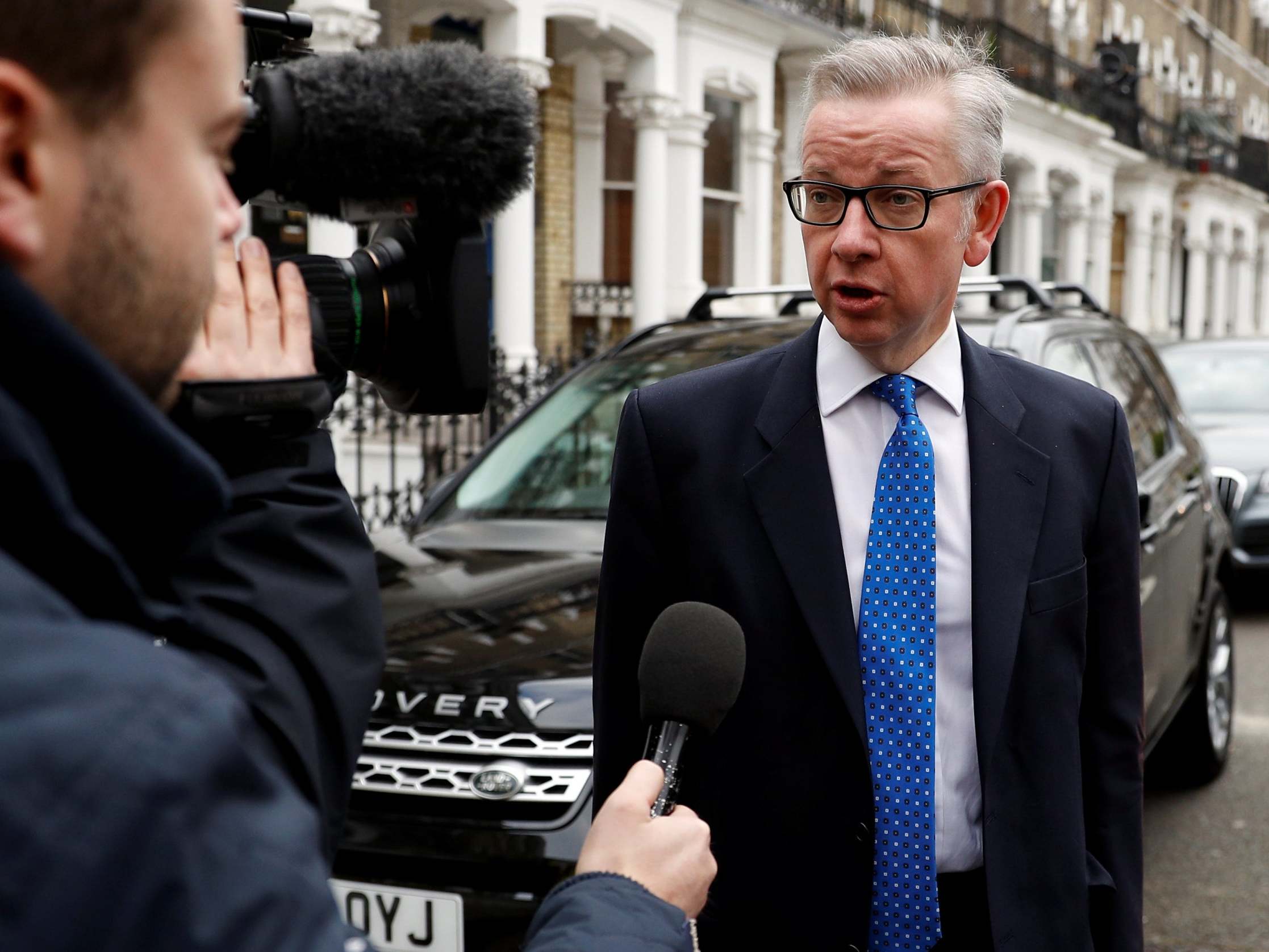Michael Gove’s drug use should not disqualify him from becoming prime minister
There may be all sorts of reasons the environment secretary should not be prime minister, but his admission that he used cocaine 20 years ago is not one of them

Does Michael Gove’s past use of cocaine, a class A illegal drug, disqualify him as prime minister? We think not. Barack Obama admitted to using cocaine before he sought elected office. David Cameron never denied taking cocaine as a student, and Boris Johnson, who is Mr Gove’s main rival for the top job now, has admitted being given cocaine but says “I sneezed and so it did not go up my nose”.
In each case, their past drug use opens them up to the charge of hypocrisy, but has next to no bearing on their ability to fulfil the demands of high office.
It is possible that Conservative Party members may take a different view, in which case today’s revelation will be a boost to Sajid Javid, the only leading candidate claiming not to have used illegal drugs. Jeremy Hunt, Dominic Raab and now Andrea Leadsom have all admitted to past use of cannabis, while Rory Stewart smoked opium on his travels in Iran 15 years ago.
Mr Gove’s confession is unusual mostly in its directness. “The book is correct,” he said to the Daily Mail about an account in a biography of him written by Owen Bennett, which is to be published next month.
The book recounts how Mr Gove was asked by his team if he had taken drugs, to prepare him for interviews when he ran for the Conservative Party leadership three years ago. He said, “Yes, cocaine.” The question did not come up at the time and has now surfaced only as a result of Mr Bennett’s research.
If Mr Gove is hoping his clarity on the matter will allow him to put the subject behind him, he may be disappointed. He said: “I did take drugs. It is something I deeply regret. Drugs damage lives. They are dangerous and it was a mistake.”
He could have said more about the damage done by the drugs trade, not just in fuelling crime in this country but in undermining the economies of entire countries such as Colombia. And he could have said something about the appearance of one law for the metropolitan elite and another for the poor.
Indeed, many have seized on Mr Gove’s admission to renew their demands for legalising recreational drugs and making their supply and quality subject to the same standards as are applied to medical drugs. That is an argument that stands or falls on its merits; it is neither strengthened or weakened by the apparent hypocrisy of several candidates for the office of prime minister.
As MPs weigh up the candidates’ qualities, they should assess their record and judgement in government, their character, their communication skills and above all their realism. They should not be choosing the next prime minister according to whether they did foolish things before entering politics.
Join our commenting forum
Join thought-provoking conversations, follow other Independent readers and see their replies
Comments
Bookmark popover
Removed from bookmarks